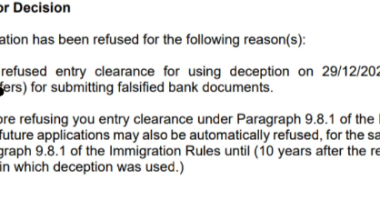Have you ever wondered why a medication that’s commonly prescribed in one country might be completely off-limits in another?
As someone who’s navigated the complex world of international medication laws, I can tell you it’s a fascinating and sometimes frustrating journey.
Today, we’re diving into the intriguing topic of Ritalin’s legal status around the globe. Buckle up, dear reader, as we embark on a whirlwind tour of countries where this well-known ADHD medication is strictly prohibited.
The Ritalin Riddle: Understanding the Basics
Before we jet off to explore different countries’ stances on Ritalin, let’s take a moment to understand what we’re dealing with.
Ritalin, also known by its generic name methylphenidate, is a stimulant medication primarily used to treat Attention Deficit Hyperactivity Disorder (ADHD) and narcolepsy. In many parts of the world, it’s a go-to prescription for helping individuals manage their focus and attention.
But here’s where it gets interesting: despite its widespread use in countries like the United States, Canada, and much of Europe, Ritalin finds itself on the wrong side of the law in several nations. Why? The reasons are as varied as the countries themselves, ranging from cultural attitudes towards mental health to concerns about abuse and addiction.
The No-Go Zones: Countries Where Ritalin is Illegal
1. Japan:

Imagine you’re an expat moving to Japan, prescription in hand, only to discover your ADHD medication is completely banned. That’s the reality in Japan, where Ritalin is classified as a narcotic and its import, possession, and use are strictly prohibited.
I remember chatting with Sarah, an American teacher who moved to Tokyo. “I had to completely overhaul my ADHD management strategy,” she told me. “It was like learning to function all over again without a tool I’d relied on for years.”
Japan’s stance stems from a complex interplay of factors:
- Historical concerns about stimulant abuse
- Cultural attitudes towards mental health treatments
- A preference for non-pharmacological interventions
For individuals with ADHD in Japan, alternative treatments like behavioral therapy and other medications are the norm. It’s a stark reminder of how cultural context shapes medical practices.
2. Thailand
If you’re planning a trip to Thailand, you might want to leave your Ritalin at home. This Southeast Asian country has some of the strictest drug laws in the world, and Ritalin falls squarely within their definition of a controlled substance.
Thai authorities view Ritalin as a Category 2 narcotic, placing it in the same legal category as cocaine and morphine. The penalties for possession can be severe, including hefty fines and potential imprisonment.
Why so strict? Thailand’s approach is rooted in:
- A history of combating drug trafficking
- Concerns about stimulant abuse, particularly methamphetamine
- Limited recognition of ADHD as a condition requiring medication
For travelers and expats alike, this means finding alternative ways to manage ADHD symptoms while in the country. As one long-term expat in Bangkok shared with me, “Living here forced me to explore non-medicinal approaches to managing my ADHD. It was challenging, but also eye-opening.”
3. Saudi Arabia:

When it comes to Ritalin, Saudi Arabia takes a hardline approach. The medication is completely banned, with no exceptions. This stance is part of the kingdom’s broader zero-tolerance policy towards drugs.
In Saudi Arabia, the prohibition on Ritalin is influenced by:
- Religious and cultural views on substance use
- Concerns about potential abuse and addiction
- A different approach to mental health treatment
For Westerners working in Saudi Arabia, this can come as a shock. John, an oil industry executive I spoke with, described his experience: “I had to work closely with my doctor back home to find alternative treatments before I moved. It was a process of trial and error, but ultimately, I adapted.”
Navigating the Legal Labyrinth: What This Means for You
Now that we’ve toured some of the countries where Ritalin is off-limits, you might be wondering, “What does this mean for me?” Whether you’re a traveler, an expat, or simply curious about global drug policies, understanding these laws is crucial.
Here are some key takeaways:
- Always research before you travel: If you’re on Ritalin or any other medication, check the drug laws of your destination country well in advance.
- Consult with your doctor: If you’re moving to a country where Ritalin is illegal, work with your healthcare provider to explore alternative treatments.
- Be prepared to adapt: Living or traveling in countries with different medication laws may require you to adjust your treatment approach.
- Respect local laws: Remember, claiming ignorance won’t protect you from legal consequences. Always adhere to local regulations.
- Consider cultural context: Understanding the cultural attitudes towards ADHD and its treatment can help you navigate healthcare systems abroad.
As someone who’s lived and traveled extensively, I can’t stress enough the importance of being informed. Each country’s approach to Ritalin reflects a complex tapestry of cultural, historical, and medical factors. By understanding these nuances, you’re not just protecting yourself legally – you’re gaining insight into diverse perspectives on health and medicine.
The Bigger Picture: Reflections on Global Drug Policies
As we wrap up our journey through the patchwork of Ritalin legality, it’s worth taking a moment to reflect on the bigger picture. The stark differences in how countries approach this medication highlight the ongoing global debate about drug policy, mental health treatment, and the balance between medical use and potential abuse.
What do these differences tell us about our world? Perhaps they remind us that medicine, like so many aspects of our lives, is deeply influenced by culture, history, and politics. They challenge us to think critically about our own assumptions and to remain open to different approaches to health and wellness.
As you ponder these issues, I encourage you to keep exploring, keep questioning, and keep learning. The world of international drug laws is constantly evolving, and staying informed is key to navigating it successfully.
Remember, whether Ritalin is legal or not in a particular country, there are always options for managing ADHD and other conditions. The key is to be proactive, adaptable, and open to new possibilities. After all, isn’t that what global citizenship is all about?
So, the next time you pack your bags for an international adventure, take a moment to consider the invisible borders drawn by medication laws. It might just change the way you see the world – and your place in it.





